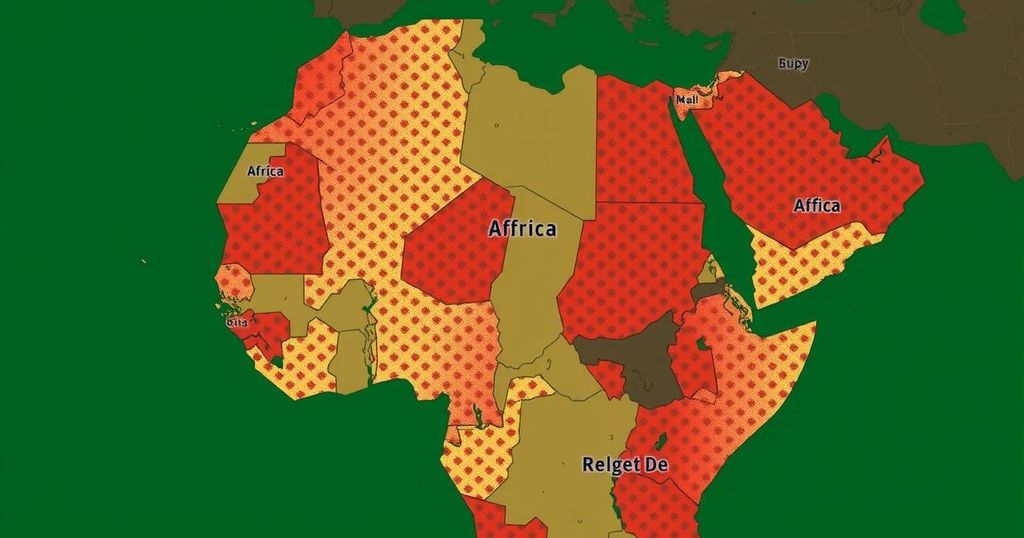Lessons from African Democracies for American Elections
Elections in many African nations, such as Ethiopia and Nigeria, illustrate the risks of electoral violence rooted in the perceptions of legitimacy among losing parties. Trust in the democratic system and inclusivity of minority voices are essential for peaceful transitions of power. Successful electoral engagements often rely on frameworks bolstered by civil society participation, contrasting sharply with outcomes in regions where such measures are insufficient or absent, as seen in Nigeria’s recent electoral turmoil.
The dynamics of electoral violence in various regions, particularly in Africa, offer crucial insights into the framework of democratic processes that could benefit other democracies, including the United States. Elections in many African nations are often marred by violence and intense contention, largely hinging upon how losing parties perceive the legitimacy of the electoral outcomes. The assurance of non-violent acceptance of results comes from an ingrained belief in the fairness of the electoral process, as well as trust in the democratic institutions in place. Recent historical events illustrate this phenomenon. For instance, the Ethiopian elections have recently exemplified how government actions can destabilize the opposition and encourage violence. Reports indicated that the ruling party strategically dismantled opposition channels, leading to a boycott by significant opposition parties. This erosion of trust and subsequent turmoil can escalate into violent conflict, as seen in the ongoing tensions in Tigray. Moreover, instances such as those in Gambia demonstrate the positive impact of civilian frameworks and external mediators which can facilitate peaceful electoral conduct through established codes of conduct for candidates. Conversely, Nigeria’s recent elections revealed the dangers of lacking such frameworks, where violence and electoral malpractice marred the democratic process, highlighted by a dismal voter turnout. To mitigate tensions and promote peaceful electoral outcomes, it is crucial to build a robust political culture that transcends simply counting votes. Effective electoral systems should foster inclusivity, ensuring minority rights are preserved – an approach that encourages a wider acceptance of electoral outcomes. As observed, a pervasive sense of unsatisfactory or unfair political conditions can often lead to the depiction of elections as a conclusive apotheosis of power rather than a mere expression of democratic will. In essence, as societies grapple with largely polarized political climates, a commitment to ensuring credible electoral frameworks, alongside active civil monitoring, may significantly diminish the risks of electoral violence. The narrative surrounding electoral integrity must be cultivated through shared commitments to fair practices among political leaders and the broader citizenry.
Electoral violence can occur when political parties are polarized, and losing candidates or factions do not trust the electoral process or the governing bodies that oversee elections. In several African nations, particularly Ethiopia and Nigeria, historical patterns of electoral manipulation and ethnic rivalry have led to significant conflict surrounding elections. Notably, countries characterized by fragile democratic institutions tend to experience higher risks of election-related violence. Understanding these dynamics provides necessary context to assess how electoral integrity can be fostered globally, reinforcing the notion that lessons can be learned from these troubled democracies by more established ones like the United States.
In summation, the examination of electoral processes across varying democracies reveals profound lessons regarding the integral role of trust, inclusivity, and monitoring in maintaining peace during election cycles. Electoral violence often stems from perceptions of illegitimacy and the absence of lawful frameworks. To ensure a healthier democratic process, it is imperative to prioritize transparency and cooperation among political factions, while actively engaging civil society in electoral monitoring. Ultimately, adherence to these values fosters a more peaceful environment for democratic expression, crucial for the sustenance of stability in any democracy.
Original Source: foreignpolicy.com




Post Comment